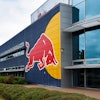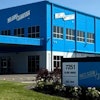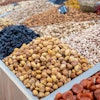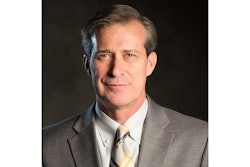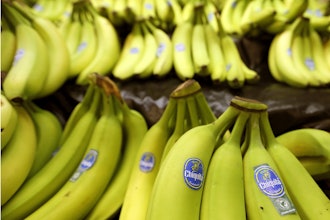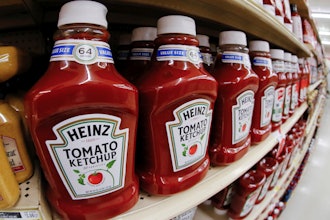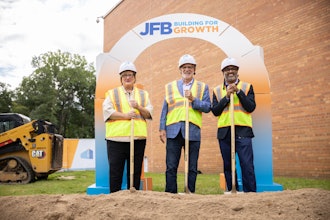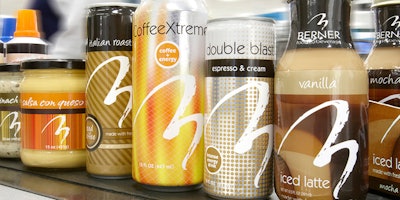

The November/December 2014 issue of Food Manufacturing featured a profile of Berner Food & Beverage, an Illinois manufacturer of private label and store brand ready-to-drink coffee and functional beverages, dips, sauces and aerosol cheese products. In the four years since FM’s visit, Berner has experienced both considerable change and considerable growth.
The company, which had been owned and operated by the Kneubuehl family since its founding in 1943, was sold to Peak Rock Capital in November 2015. A new CEO, Kurt Seagrist, was appointed in June 2016. And in September 2017, Berner announced the completion of a significant expansion at its manufacturing facility in Dakota, Illinois — one that tripled the size of the operation. Most recently, the company, in September 2018, broke ground on a new 675,000-square-foot warehouse and distribution center located in New Milford, Illinois.
During that same time frame, Berner has been quick to adapt to both consumer trends and changes in the marketplace in order to best meet the needs of its customers.
The company is placing an even greater emphasis on its capabilities in the ready-to-drink coffee market by increasing production capacity, developing new products and offering an array of new flavors. Berner has also expanded its dip program over the past year-plus, addressing the clean label movement by developing clean label dip products. And the company remains the primary producer of aerosol cheese in the United States.
FM had the opportunity to speak with Seagrist earlier this year about Berner’s recent growth. (Editor’s Note: Some responses have been lightly edited for concision and clarity.)
Food Manufacturing: What were the factors and considerations that led to the facility expansion?
Kurt Seagrist: “The expansion and the investment in the plant is due to the continuing investment in the business and the needs of our customers. We’ve tripled the size of our facility, growing our manufacturing space from 92,000 square feet to well over 285,000 square feet, greatly increasing our production capacity. We now have increased capacity that is optimized for efficiency. It’s going to allow us to serve our customers better and continue to expand in the market. In fact, we’re already filling our production lines very, very quickly with new business opportunities.
“Our production lines are focused on retort process manufacturing, which is the premium sterilization technique in the marketplace, which allows for the premium packaging formats of metal and glass that customers and consumers demand. We’ve added multiple retort machines and brand new, state-of-the-art processing and packaging equipment. We’ve added (employees) to support that. We’ve increased our capabilities, and we’re able to manufacture products for our customers more efficiently.
“We have also made infrastructure and amenities upgrades so our employees, now, are able to work in an even more comfortable environment than they were in the past.
“… And the most important thing is, we’ve maintained our level of quality standard rating — SQF Level 3, which is the highest rank that customers look for. Overall it’s a significant expansion into the marketplace as we look forward.”
FM: How does the facility expansion set up Berner Food & Beverage for the future?
KS: “The renovation was completed with an eye towards, ‘What will the future look like in the ready-to-drink coffee market, and others.’
“We’re constantly analyzing the consumer preference data, keeping our customers informed as the landscape changes, (and) presenting new opportunities to grow their business. Our newly renovated facility has room for us to grow … and we have additional, flexible production lines to evolve to the needs of our customers. We can go beyond the new beverage lines that we’ve installed, whenever the time is right. We have the room to expand. Right now, we feel like we’ve set the company up for a strong future growth platform.”



FM: How many jobs has the company added as a result of the expansion?
KS: “We’ve gone from 355 employees in 2015 to well over 600 employees in 2018. We’ve added a substantial number of both direct production jobs and indirect jobs supporting the business — all in northern Illinois. We expect to continue to hire good talent right here from our community … We’re really trying to support the community as we move forward with the addition of jobs and the creation of good manufacturing labor positions for the people in the market.”
FM: How would you describe the company’s focus, and how has it adapted to trends in the industry?
KS: “As far as where we’re focused as a company — it’s beverage production. The beverage category, it’s booming. If you look at the ready-to-drink coffee market, it’s grown exponentially; it has outpaced all of the other shelf-stable beverages in the marketplace. We’re striving to become a leading supplier to that market, and we’ve expanded as such.
“We’ve put two additional beverage lines in to support growth in the future. We’re now well-positioned to serve our customers’ needs as they stand and as they grow in the future.
“The trends that we’re capitalizing on are the beverage trends, the ready-to-drink coffee trends and some of the new dips and sauces that are coming out in the marketplace. We see cold brew as an emerging trend and a customer favorite right now, and it’s a natural extension of the ready-to-drink coffee energy drinks. It’s innovative, it has solid flavors and mouthfeel to capitalize on consumer demand. The ready-to-drink (market) has really experienced a transition similar to the craft beer revolution … all new flavors, ingredients and the processes are keeping customers thirsty for new entrants into the marketplace, and it’s attracting what I would consider non-traditional coffee consumers to the space, bringing them out of the coffee shops and into the retail space for future growth.
“We really believe that another key area for us is the carbonated and nitrogen-infused products that are going to be the next big trends. We are positioning ourselves as a company to capitalize on those trends. You’ve seen some those in the marketplace already.
“And a final extension that we’re looking at is functional, better-for-you options across all of our products and brands that are giving rise to a customer landscape that is more informed than ever on the quality of the products that are out in the marketplace and wanting a good product.
“If I were to sum it up, we’ve built a company for future growth, we’ve significantly expanded our facility, we are adding jobs and capital to the marketplace, we’re maintaining our focus on the key trends in the marketplace that continue to provide us growth, and we feel like we’re well-positioned for the future.”
FM: What other areas of the company has the business invested in, in recent years?
KS: “We’ve invested in all functional areas of the business including research and development, technology, quality, sanitation, maintenance, sales and customer service. All functional areas of the company have been invested in for the future.
“What’s really important is, we’re a natural resource for our customers. We have access to data and trend information. We share that with our customers, and we can guide them in their programs, which is one of the ways that we’re becoming leaders in the marketplace. We have solid technical skill-sets and quality skill-sets that really are driving exponential growth for us.”

